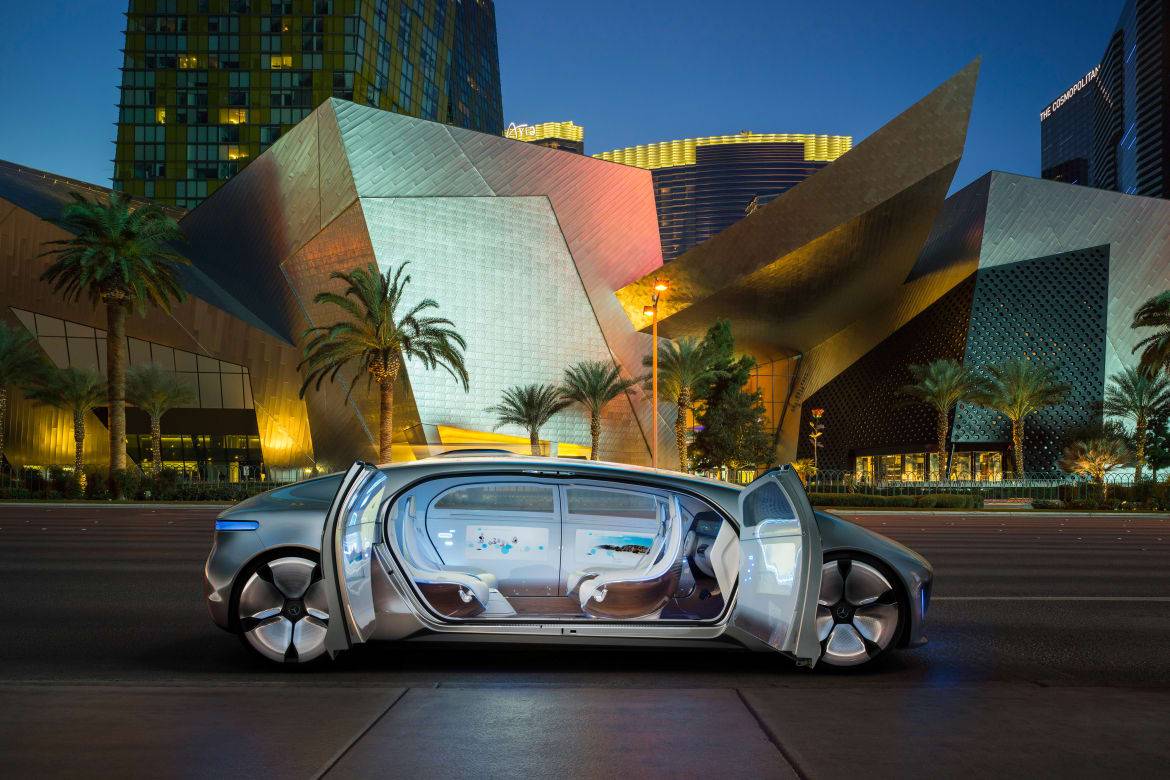Self-Driving Mercedes Commercial Spurs Call for Greater Scrutiny


CARS.COM — Safety and consumer advocates issued a joint letter to the Federal Trade Commission on July 27 to investigate a Mercedes-Benz commercial that promotes the redesigned E-Class’ self-driving abilities.
Related: Self-Driving Cars: The Big List of Which Automakers Do What
The ad, titled “The Future,” opens as Mercedes’ F 015 Luxury in Motion autonomous concept car whisks a family through a deserted city; a narrator asks if the world is ready for a self-driving car. Then the 2017 E-Class accelerates past the F 015 as the narrator extolls its ability to self-brake, self-correct and self-park — complete with footage of the E-Class’ driver letting go as the sedan steers left around a corner, then parks itself. We’ve driven the new E-Class, and it can, in fact, do those things — though not without a few hiccups.
Consumer Reports signed this week’s letter along with former National Highway Traffic Safety Administration chief Joan Claybrook and officials from the Consumer Federation of America and Center for Auto Safety. Addressed to FTC Chairwoman Edith Ramirez, the letter urges the agency to scrutinize the marketing around self-driving technologies.
In particular, the E-Class commercial “is likely to mislead a reasonable consumer by representing the E-Class as self-driving when it is not,” the letter says, adding that the FTC “should take enforcement action against companies that falsely, misleadingly or unfairly claim that their cars drive autonomously when they actually require the steady control of a human driver.”
The letter goes on to say that Mercedes markets the car in such a way that “could give consumers a false sense of security in the ability of the car to operate autonomously,” despite the fact that it doesn’t meet industry classifications as a self-driving car.
Today, virtually all automakers with cars that have self-driving features still insist they’re not a substitute for driver attention. Indeed, the fine print on the E-Class ad notes that the car “cannot drive itself, but has automated driving features. System will remind the driver frequently to keep hands on the steering wheel.”
That doesn’t cut it, safety and consumer advocates say.
Disclaimers notwithstanding, advocates claim in the letter that Mercedes has run afoul of the FTC’s Clear and Conspicuous Standard, which bars advertisers from using fine print “to contradict other statements in an ad or clear up false impressions the ad might leave.”
Asked for comment, a Mercedes-Benz spokeswoman did not respond. Mitch Katz, an FTC spokesman, couldn’t immediately confirm whether the agency had received the letter. But he said the FTC “wouldn’t comment on the letter without obviously taking the time to evaluate what it’s supposed to do.”
If the agency opens an investigation, it wouldn’t disclose that unless it bore some sort of result, Katz added.
The letter comes as recent events have cast some uncertainty over consumer acceptance — and proper usage — of self-driving technology. Tesla, an automaker at the forefront of the self-driving movement, has had some well-publicized incidents with its Autopilot and Summon features. In one case, a Model S allegedly in Summon mode crept into the back of a trailer. In another incident, a driver died when his Model S on Autopilot hit a truck. The National Highway Traffic Safety Administration is investigating the death, but Consumer Reports has already called for Tesla to disable certain Autopilot features.
Tesla has stood by its technology but says it will step up efforts to educate consumers about its proper use.

Former Assistant Managing Editor-News Kelsey Mays likes quality, reliability, safety and practicality. But he also likes a fair price.
